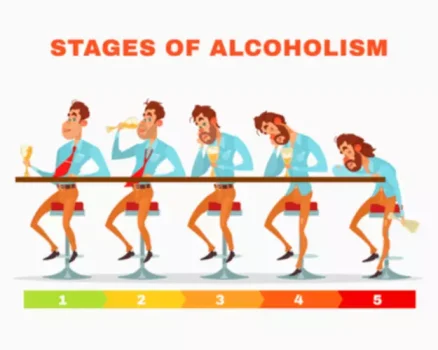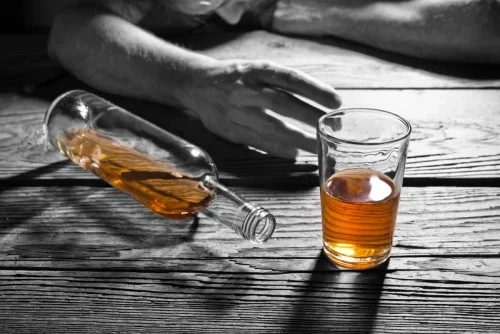
For instance, if you drink a can of beer, your body will remove toxins more quickly as compared to a shot of vodka with a higher ABV. The first thing you will want to do is drink water throughout the day or days. The goal is that as you consume more water, it will flush out marijuana, cannabinoids, and other drug metabolites from your bladder, making what’s left undetectable. While drinking water is natural, you don’t want to over drink because it could cause hyponatremia which could be lethal [1]. The following chart shows how likely it is for urine alcohol levels to show up in EtG tests based on how much alcohol you consume and how much time passes after your last drink. Hair tests can detect alcohol in a person’s hair for up to 90 days after drinking.
Saliva Tests (12 to 24 hours)
While the above ways weren’t perfect, they do have a chance of success that makes it the best way to pass a drug test. But below are three common solutions that won’t get you passing a drug test anytime soon. While this is great for reducing weight and burning body fat, it sends the THC toxin that was once in the fat cells down to your sweat, saliva, and urine [2]. That means more toxins in your urine and a higher likelihood of a positive test result.
Use Milk Thistle Supplements
The form found in most alcoholic beverages is known as ethyl alcohol, which is produced during the fermentation process. A carbohydrate-deficient transferrin (CDT) test can detect heavy alcohol use. A hair follicle test can detect alcohol use within the past 90 days. Although urine tests are a relatively inexpensive and noninvasive way to test for alcohol, they may be inaccurate in some cases.
Understanding Urine Alcohol Levels — a Quick Chart
Having food in your stomach can slow down the absorption of alcohol while you’re drinking. In most cases, deliberately increasing your blood glucose levels isn’t a good idea. However, the toxins in alcohol actually lower the amount of glucose in your bloodstream, which can lead to hypoglycemia (low blood sugar). Alcohol causes dehydration, which is why you get a hangover the next day after a night of drinking. Drinking plenty of water will reduce dehydration and get water back in your system.

As you age, alcohol remains in your system longer because your body becomes less efficient at metabolizing it. Older adults also tend to have a lower volume of total body water, which can slow down alcohol metabolism. A blood alcohol test can show evidence of alcohol in your system up to 12 hours later. Alcohol can be detected in your system even after your body has fully metabolized it. How long alcohol shows up on a test after your last drink depends on the type of test and how heavily you have been drinking.

That’s why heavy drinking can cause a variety of alcohol-related diseases and disorders. Factors that determine how long alcohol stays in your body include liver size, body mass and the amount of alcohol consumed. A small amount of alcohol is removed from the body through sweat, urine and respiration.
- As with many tests, urine tests are not accurate 100% of the time.
- Still, it should be noted that there is no one, perfect solution to this concern.
- She has spent the past 5 years specializing in the treatment of opioid and alcohol use disorders.
- However, we aren’t always given that option which is why finding quick detox options is important.
- Opt for lean proteins, fruits, vegetables, and whole grains to aid in the detoxification process.

Most urine tests detect alcohol up to 12 hours after your last drink. Advanced urine tests, however, may be able to detect alcohol 24 hours after drinking. The body generally eliminates 0.015 grams of alcohol per deciliter of blood each hour. Genetic, environmental, and physical and mental health factors control alcohol metabolism and elevate your blood alcohol content — the percentage of alcohol in the blood. This length of time usually depends on how recently and how much you drank.
- Drinking stronger alcoholic beverages can accelerate the absorption rate.
- It’s not just about alleviating the symptoms of a hangover; it’s about aiding our bodies in recovering and detoxifying from the effects of alcohol consumption.
- The detection window for saliva tests is usually shorter than for breath or blood tests.
- Your liver is responsible for breaking down the majority of alcohol in your body.
- Sleeping won’t physically remove alcohol from your system, however, it will give your body time to rest so it can effectively remove alcohol from your system.
Medications like antidepressants and antibiotics can slow down the breakdown of alcohol in the body. Eating before drinking affects how quickly you’ll get drunk and whether you will feel sick after drinking. how to flush alcohol out of your urine in 24 hours However, if you continue to consume alcohol, the food you ate beforehand eventually becomes a moot point. Women tend to have higher BAC than men since they have less alcohol dehydrogenase (ADH).